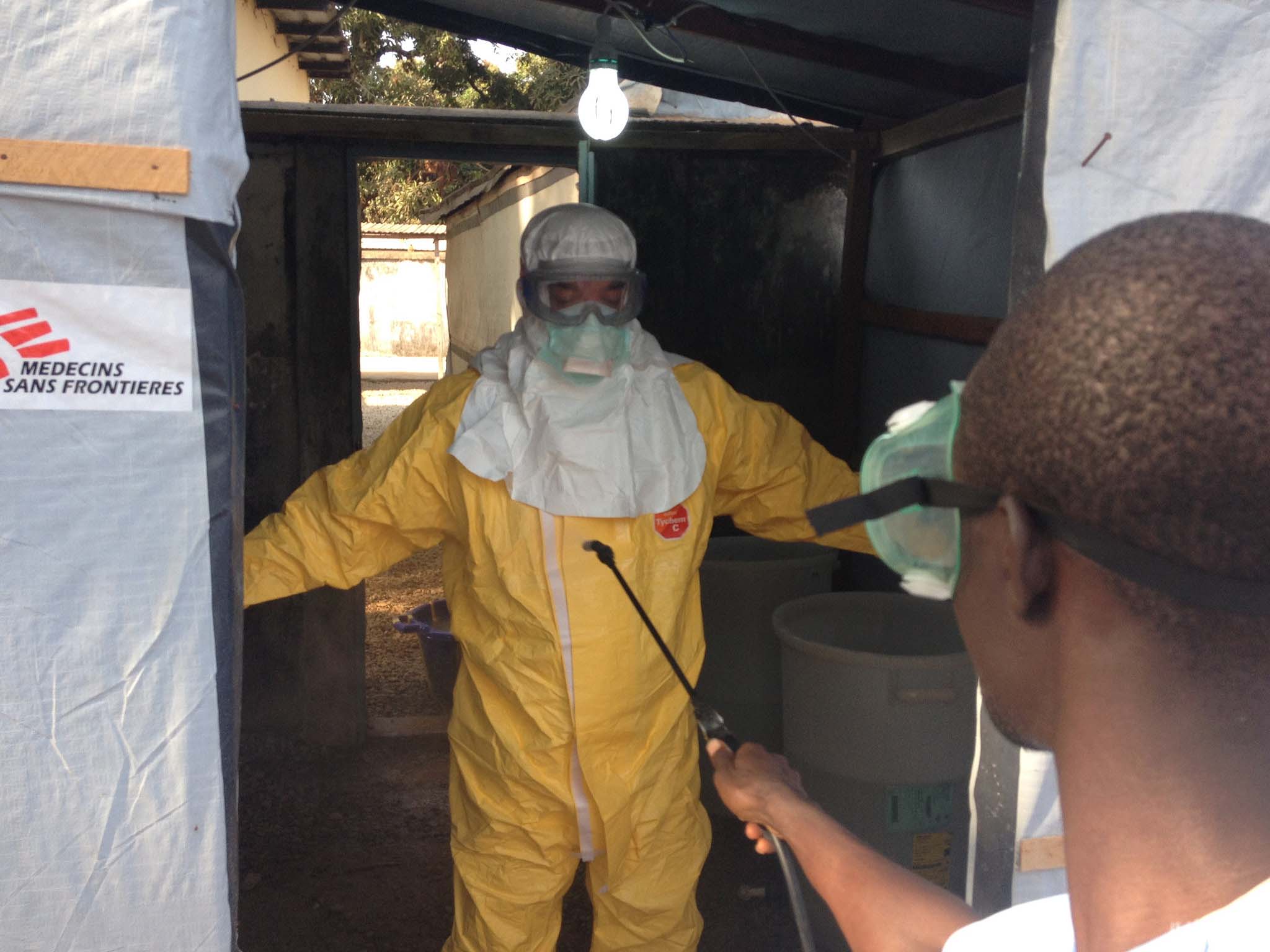
As concerns about the Ebola virus increase worldwide, healthcare officials in Qatar are urging calm, saying that there have been no cases of the illness here and that the country is on “high alert” just in case.
As of July 30, the World Health Organization (WHO) has confirmed that a total of 826 people have been killed by the virus and 1,440 have been affected since it made its comeback in March. Ebola has a mortality rate of 90 percent in its victims, and most of the people killed live in west African countries, including Liberia, Guinea, Sierra Leone and Nigeria.
Last month, the virus became air-borne when Liberian-American patient Patrick Sawyer took a flight from Liberia to Nigeria on July 20, collapsing at Lagos airport.
Qatar is home to thousands of West African expats, and the recent opening of its $15.5 billion Hamad International Airport has prompted a wave of worry from some residents.
British expat Malcolm Goddard told Doha News that he has been frustrated by the lack of information available on what Qatar is doing to manage Ebola:
“I have tried to contact The Supreme Health Council in Doha along with the World Health Organization in Qatar but have not received any feedback from them yet.
Working in the health and safety industry, it’s something I feel that should be monitored with new workers joining sites on a daily basis. Keeping in mind that Qatar has a large number of African workers as well and visitors entering Qatar one would think this would be a topic of discussion.”
Australian expat Tracy Blacksmith also expressed concern:
“I’m scared, we have people from West Africa coming to Qatar, is there any precautions at the airport? Is Hamad International Airport on alert? It’s kinda frightening!”
Response
Addressing these worries, healthcare officials have said that Ebola is less contagious than the flu, because it can only spread through contact with the blood and bodily fluids of those who are infected.
Speaking to Doha News, Peter Cameron, Hamad Medical Corp.’s chairman of emergency and medicine, said:
“With Qatar’s airport being a major hub for travelers, we have been on high alert, particularly upon hearing that the virus has traveled by air.
We are always reminding our nursing and medical staff to immediately isolate all ill West Africans who are coming to our hospitals – even if they have small symptoms such as a fever. The initial presentation can be very vague and we are fully aware of this. We are always following WHO and CDC recommendations for dealing with the virus.”
Cameron added that Qatar has already had experience handling infectious illnesses like the Middle East Respiratory Syndrome (MERS) and influenza in the past.
In terms of travel, Dubai-based Emirates Airlines became the first major international carrier to suspend all flights to Guinea on Saturday, where over 470 cases and 350 deaths have been reported.

Qatar Airways, however, has not followed suit with any restrictions. The national carrier, which flies to over 140 destinations, released a statement on it website today, saying:
“The health and wellbeing of our passengers and staff is of upmost importance to Qatar Airways and we would like to reassure you that we are monitoring the situation very closely and are in contact with both local and international health and aviation organisations to ensure that all necessary and appropriate measures are in place to protect our passengers, our staff and the general public.”
Saudi restrictions
Elsewhere in the Gulf, Saudi Arabia has upped its airport screenings to prevent the virus from entering its borders.
KSA’s Ministry of Health has also banned Muslim pilgrims from Sierra Leone, Guinea, and Liberia from performing Umrah and Haj this season because of concerns about the spread of the Ebola virus.
However, Tawfiq Ahmad Khoja, director-general of the GCC executive health office, recently told news media that concerns about an actual outbreak in the region are low:
“The disease does not constitute any fears to Gulf countries … The symptoms and the incubation period are fast; therefore, it is highly unlikely that Ebola cases might reach the kingdom (Saudi).”
According to WHO, the incubation period for Ebola ranges from two to 21 days.

This is not the first time there has been an Ebola outbreak, which has been around since 1976. But health and government officials say they have been taken aback by how quickly the virus has spread this time around.
Earlier this week, Dr. Margaret Chan, WHO’s director general, said “catastrophic” consequences await if the outbreak continues at this rate.
In response, health officials have announced plans to fast-track the development of an Ebola vaccine, which is expected be tested in humans next month.
But there are uncertainties.
In order for the vaccine to reach human testing, developing efforts depend on a number of possibilities: speedy regulatory approval of the trial, the first of its type in healthy humans; results proving the vaccine is safe and provokes an immune response; and, perhaps most crucial, the interest and investment dollars of the pharmaceutical industry.
WHO has warned everyone, particularly those traveling and working at health centers, to be on alert and take extra precautions.
With the hot and humid summer months upon us, the majority of Qatar residents are taking the opportunity to travel this season. Passengers are advised to check out WHO’s international travel fact sheet here for information and advice.
Thoughts?







